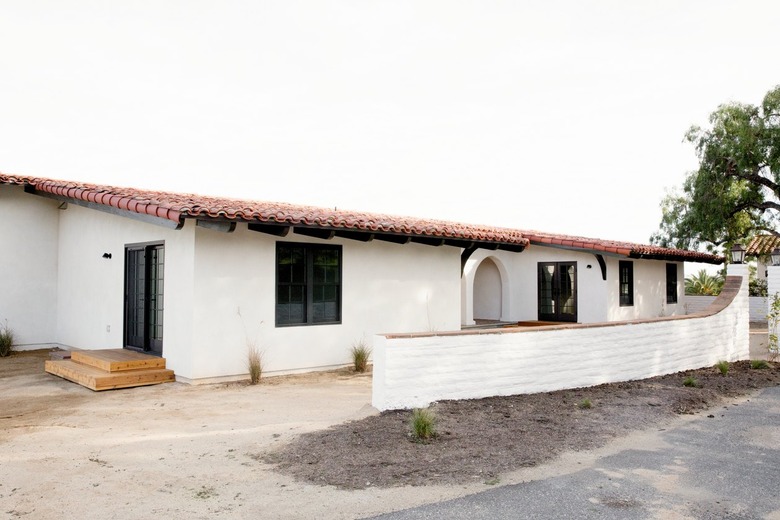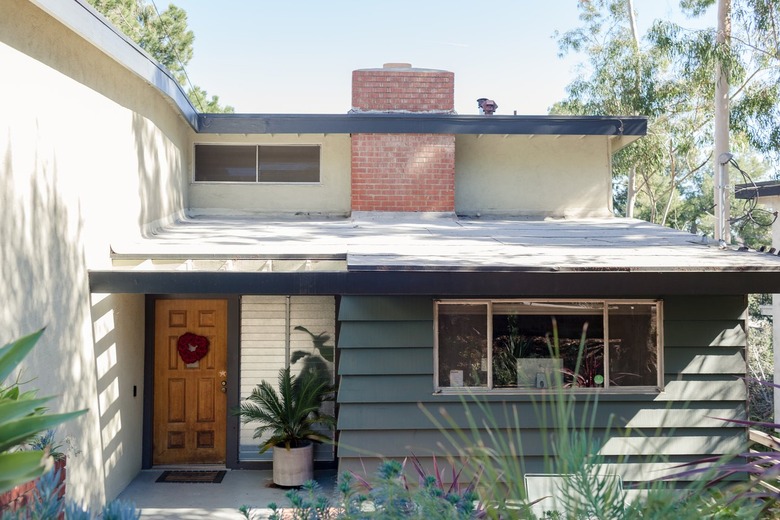How To Buy A House At Auction
If you are searching for an alternative to the usual agent-heavy process of buying a new home, you may want to consider real estate auctions. While some people find great deals at auctions, and you may too, the only thing you are actually guaranteed when traveling down this road less taken is having a real adventure.
The auction process is fast-paced, risky and stress-provoking, and it carries its own set of risks and rules. Before diving into the fray, it's important to get a clear understanding of the different types of real estate auctions out there, the benefits and risks, what it takes to participate and the procedure for doing so.
Reasons for Real Estate Auctions
Reasons for Real Estate Auctions
Everybody understands that a real estate auction is where a property is sold to the highest bidder, but it is somewhat more complex than that, given that there are a number of different types of auctions, each with its own set of rules and procedures.
One way to distinguish auctions is by looking at the reasons a home may be auctioned off. Most auctioned-off homes are in foreclosure. That means that the owner bought the house with a mortgage loan but hasn't kept up with the mortgage payments. That sends the mortgage into default, and the lender can foreclose on it. If the borrower fails to repay the balance of the loan or set up a new payment plan, the lender can then put the house up for sale at an auction.
Liens that have attached to property can also result in property auctions. For example, failure to pay assessed property taxes can put a home on the auction block. In that case, the taxing authority seizes the property and can sell it at a tax-lien auction.
Real Estate Auction Objectives
Real Estate Auction Objectives
In every case, the aim of the auction is to sell the house for enough money to pay off the underlying debt plus the costs of the procedure. Sometimes, there is a minimum bid amount to make sure that will happen. Note that in most cases, the mortgage lender or creditor can't profit by raking in more money than it is owed. Anything above the mortgage and/or liens must be returned to the foreclosed homeowner.
The bidder who offers the most money will usually take ownership at an auction as long as the winning bidder also meets any minimum set and any other bid requirements. However, in some auctions termed "reserve" or "lender confirmation" auctions, the lender does not have to accept a bid even if it is the highest. Every bid in this type of auction is treated as an offer that can be accepted or rejected. In "absolute" auctions, the highest bidder always takes the property.
Benefits, Risks and Challenges
Benefits, Risks and Challenges
If you've ever run into someone who got a great deal at an auction, they are very likely to be singing about the bargains you can get with this type of sale. It is possible to get a great deal, but it is not assured. Inexperienced buyers can make big mistakes by overbidding or not thoroughly checking out the house enough to know what they are getting into. Get a good handle on the potential benefits, risks and challenges before you begin the process and keep a level head as you consider any particular house.
Benefit: A Potential Bargain
This is the big draw, right? Buying a home in your preferred neighborhood for tens of thousands of dollars less than the price you would expect to pay on the open market. But don't get too excited without taking a closer look. For every real steal, you are likely to find more than a few houses that require so much work that they aren't worth the minimum bid.
Benefit: Less Competition
One great advantage for buyers who participate in an auction is that they have less competition than they do in a hot real estate market, but keep in mind that the other bidders are more likely to be experienced purchasers or professionals who know what they are doing.
You can even this up a little by getting a thorough overview of the process in your area. It's also a great idea to attend a handful of auctions before you bid for the first time. That gives you the lay of the land without any risk.
Risk: "As Is" Property
Don't ever forget that you are buying the property "as is." That presents a risk. A big issue in buying an auction property is that you won't know as much about it as you would like. You can drive by a property that is to be auctioned off, but you may or may not be able to go inside to take a look. Only those buyers with exceptional financial reserves should consider buying one of these sight unseen since the inside may be a mess.
Sometimes, potential buyers are allowed to do a walk-through with an agent, and this can give you more information, though not as much as with an inspection. Not all foreclosed homes that allow walk-throughs will permit inspections. Even if you manage to get a house inspection on a foreclosed property, there could be hidden problems that turn the deal from a great one to a headache.
Challenge: Cash Is Required
It's not a good idea for a cash-strapped buyer to try to find a bargain in a home auction. Although each auction company and government seller has its own rules about payment, buyers will usually need a healthy amount of cash. You will probably need to hand over cash just to bid, and if you win the auction, the full payment must be made with cash or a cash equivalent, such as a cashier's check or money order. This may be due immediately after the auction, and failure to pay results in deposit forfeit.
What about financing? Don't count on it because many auctions mandate cash. While some auctions permit financed purchases, you'll need to know the rules beforehand and certainly get prequalified. Also, because these homes are in default, their utilities may be shut off, and other problems may exist that make it difficult to close with a loan.
Even if you can, you'll still need cash to get you through earnest money and escrow and closing. These fees are similar to regular real estate purchase fees. Ask about auction fees that the buyer must cover, sometimes calculated at a flat percentage of the selling price. There can also be sale-carrying fees and property preparation fees.
Types of Auctions
Types of Auctions
Not every foreclosure auction is held on the courthouses steps like in the movies. In fact, you may not even be able to bid in person at an auction depending on the type of auction.
Do you want the whole auction experience? Go to an auction at the county courthouse for the real-deal adventure. These "courthouse steps" auctions sell lender-foreclosed or liened homes on a specific date every month. These sales occur at the courthouse, though not always on the steps. The location or room number will be published, and buyers have to show up to participate. You might be asked to raise your hand or lift a paddle to bid.
Some auctions are called "silent" or "closed" auctions, including those foreclosed homes financed by the Department of Housing and Urban Development (HUD). "Closed" doesn't mean that only a few potential buyers are allowed to attend. Anyone can bid on a foreclosed HUD house, but you will be wearing blinders because buyers place their bids without having any notion of what other people are bidding. The bids are sent to a secure website and are then opened the day after the auction. Whoever places the highest bid gets the house.
As you are researching home auctions on your computer, you will surely come across online auction sites, like Auction.com. This site and its competitors (like RealtyTrac and Hudson & Marshall) offer foreclosed homes for sale through online auctions. The auctions are often held completely online, including taking bids with earnest money on credit cards. The goal is to turn over properties quickly and efficiently.
How to Buy a Home at Auction
How to Buy a Home at Auction
1. Figure Out Your Finances
Know your budget and your financials, including the cash reserves you have available. If you are going to need to borrow money for the purchase, find an auction that allows financed purchases and figure out where you'll seek financing. If you are borrowing, get a preapproval from a lender. If you are planning to pay cash, prepare some proof from the bank showing what you have to open up your right to bid.
2. Find the House
Find houses for sale at auctioneer sites online, in the local newspaper or posted in public places, like the county courthouse. Subscribe to real estate services that offer details on foreclosed properties or purchase foreclosure lists of homes coming up for auction. Flip through notices about upcoming auctions in legal newspapers and select some to drive by. Do your due diligence to check the condition of the house by doing a walk-through of your preferred house if permitted. If not, peer in the windows and talk to the neighbors, finding out as much as you can about the property's current condition.
3. Search for Title Issues and Look for Occupants
Check for liens or title issues on the property before you bid or you'll find yourself in deep water. Hire a title-search company to check this out for you. It's worth the money since once you buy the place, you are responsible for any and all recorded liens on the property. Try to figure out if anyone is living in the property. Eviction is a long process and one you would do well to avoid. In any event, find out before you bid.
4. Research the Market Value
Get a real estate professional involved if at all possible to figure out the market value of the property. An experienced agent can give you more information about values in the area and comparable sales than anything you can find on your own. A real estate professional can access multiple listing service reports that provide full data and photos for the listing.
5. Find the Auction and Register to Bid
Figure out where the house you want to buy is being auctioned and register to bid at that auction. Learn the rules for the auction. For in-person auctions, bring your proof of funds to allow you to register. For online bidding, expect to pay a deposit to be able to bid on homes.
6. Place Your Bid
Learn the ropes if it's a live auction, like how you are supposed to signal your bid. Attend a few practice auctions to be sure you know what to do and then place your own bid carefully and correctly at the right time. If you are participating in an auction that is absolute, make your best bid since the best bid wins.
7. Hand Over the Cash
If you have the winning bid, hand over the earnest money, which is a "good faith deposit" that goes toward your closing costs, and get ready for closing. Find out when it will occur and when you need to pay up.



